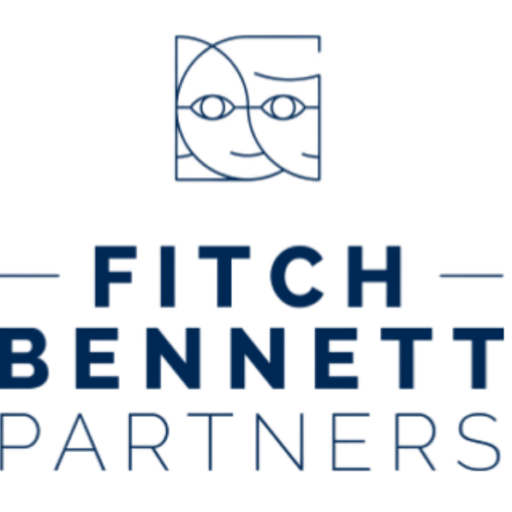The working world is always improving. From Taylorism* to today’s “War for Talent” movement, our society and its economic model are evolving and transforming everyday. In order to avoid the consequences of these changes and to turn this evolution into a deep core growth, companies must think about a strategy for recruiting and retaining talent. But then, as a business owner, how can you avoid your employees leaving? Fitch Bennett Partners has some answers for you. “Talent wars”,”the Great Resignation” and, most recently, the #balancetonsalaire… These idioms are on everyone’s lips. And they are nothing more than the translation of the search for well-being at work in all its forms (and has been emphasized by the Covid-19’s health and economic crisis.) That’s why we are now witnessing the transformation of our society and, by extension, whole the working world. Nowadays, decision-makers and their managers have no choice but to adapt themselves to the new requirements of the talents they want to hire, as traditional business environments has become obsolete. In order to avoid turnover and retain employees, companies need to implement a global recruitment and management strategy. Retaining employees: 4 tips from the Fitch Bennett Partners experience The Fitch Bennett Partners team meets candidates and employees from a variety of industries every day. Generally, employees are satisfied with their company when : Fair-value is fully satisfactory The investment, the added value and the function of the employees must be aligned with their salary. This number one rule seems obvious but is too often forgotten (sometimes unconsciously). We have met many job seekers who have left their jobs because they felt neither financially valued nor promoted. Take a moment to reflect on the efforts your employees make on a daily basis and ask yourself if they are valued at all? Flexibility on working conditions This is no longer new. With the Covid-19 crisis, teleworkers have enjoyed this freedom, which offers many benefits, both on economic dimensions and on comfort. For example, if we look further, many large companies opted for a revolutionary division of working time: 4 days of work without any salary reduction. Without going that far, it may be interesting to think about flexible working hours for your employees. Allowing flexible working hours allows employees to adjust their working hours to suit personal appointments. In this respect, an employee will be more inclined to stay with the company if the company takes care of his or her important life moments, both professional and personal (marriage, return from paternity/maternity leave, job change, etc.). Managerial mentoring Candidates are looking for managers who inspire them, legitimate people they want to be like and learn from. The manager therefore has a central role in retaining talents. Inclusive, they must also make well-being a managerial norm by promoting understanding between team members. To involve the team in achieving common goals, he or she could co-construct and reinforce the corporate culture with the employees. The quest for meaning No more work for working only. Employees are looking for the possibility to evolve in their jobs but also for a meaningful tasks on a daily basis. On the one hand, they must be able to visualize a career development within their company. On the other hand, they want to involve their work in their personal ethics and vice versa. To respond to this, the company’s decision-makers and managers must include the employee in the company’s overall objectives and make him or her understand why his or her place and role are important. This can be done through regular exchange and feedback moments. They can also promote training and skills enhancement in case of lack of knowledge or willingness to evolve. Losing talent does not mean losing knowledge Sometimes losing a talent with high added value is unavoidable. It’s not necessarily about your company, its culture or its environment, but about the interest of your employee. You’ve tried everything to keep them, but no matter what you offer, they want to leave. So, have you thought about knowledge management? Knowledge management is a process that allows you to keep the knowledge of your employees within the company. At the end of an employee’s contract, several strategies can be put in place to pass on rare knowledge and skills to his successor. This is a solution that should not be overlooked in order to onboard your new employee. In the end, in order to contribute to the success of the company, the employer must combine the interests of the organisation and those of the employees. If there is only one thing we can take away from this article, it is that talent retention must be thought out in such a way as to insert the employee into a work environment that is appropriate to their aspirations. You may also be interested in this article: Developing your employer brand, a major challenge to attract and retain talent *A method of scientific organisation of industrial work, through the maximum use of tools and the elimination of useless gestures.
Month: October 2022
Developing your employer brand, a major challenge to attract and retain talents
The tensions in the recruitment market for “top manager” profiles, resulting from a mismatch between the reciprocal expectations of supply (company) and demand (candidate), made it inevitable for companies wishing to attract talented women and men to ensure the quality of their “employer brand”. This strategy consists in creating an attractive image for the company itself in order to encourage partners, clients, employees and talent to want to work for the enterprise. But the question is… How can companies develop a strong and sustainable employer brand to attract new talents? Recruitment is more and more challenging. Not because of a lack of candidates on the job market (the United Nations actually projects that global unemployment will rise above 200 million people in 2022), but because most candidates no longer want to work without a purpose, they want to work to give meaning to their lives. In the United States, the phenomenon of the “Great Resignation” has reinforced the difficulties of retaining talented men and women within companies. After a long period of uncertainty due to Covid-19, a huge amount of Americans have left their jobs. In the first quarter of 2022, there were 4 million employees across the Atlantic leaving their jobs each month. To measure the situation in France, the DARES has carried out a study highlighting that the risk of a “Great Resignation” is “now evoked”, noting that the resignation rate to be expected will be “high but not unprecedented”. With a 2.7% resignation rate, it is the highest since the 2008/2009 financial crisis, but it remains below the levels reached at that time. (see graph 2) See the article: Recruitment trends for the first half of 2022 With the market in turmoil and candidates’ new expectations of what they want and especially what they don’t want in their work space, the economic situation is making it more difficult to complete recruitments. The proportion of companies reporting recruitment difficulties is skyrocketing. (see graph 5) [/vc_column_text][/vc_column][/vc_row][vc_row][vc_column width=”1/2″][vc_row_inner][vc_column_inner][thb_image image=”15246″ img_size=”full”][/thb_image][/vc_column_inner][/vc_row_inner][/vc_column][vc_column width=”1/2″][thb_image alignment=”alignnone” image=”15245″ img_size=”full”][/thb_image][/vc_column][/vc_row][vc_row][vc_column][vc_column_text] To remedy this problem, they are therefore trying, by all possible means, to attract the best talent to them, through attractive values, social benefits and offering greater flexibility and agility. Developing a strong employer brand to attract the best talents: a necessity to bend the competition Whether you are in a VSE or a large listed group, whether you operate in the Tech, Finance, Industry or Business Travel sector, to differentiate yourself and make your organization attractive, you need to shape your “employer brand”. Imagine missing out on the talent you are looking for because another company offered better social services? The stakes are high. In a context where the recruitment market is difficult, it is better to avoid massive turnover at all costs. And if you need new employees to generate more turnover with or without the help of a headhunter, it will be necessary to rely on the employer brand to find the best talents. But how do you do that? Improving your employer brand: what are candidates looking for? Authenticity must be a priority Like greenwashing, employer branding should not be idealized. Many companies make their image more attractive to make candidates want to come and work in their environment without paying attention to the reality on the ground. Once there, the candidate who has become an employee is disillusioned. Transparency and authenticity about the reality of the missions, the environment and the atmosphere are essential so that the candidate can project himself without getting the wrong idea. It can be useful to make a diagnosis of the realities of the company’s environment, culture and values in order to communicate and build its speech. Working on the candidate’s background Before making people want to come and work for your company, by describing its culture and working conditions, put yourself in the candidate’s shoes. Making your company attractive starts from the moment they enter. Ask yourself how you can simplify your recruitment and on-boarding processes for your employees. The logic of seduction During the so-called “fit” interview, the candidate is not the only one who must seduce. The balance of power has been reversed, so the company must present the advantages of joining its organization to candidates from the very first exchanges. In addition, besides the remuneration elements, candidates are more and more looking at the working conditions such as flexibility and autonomy. A study by CadreEmploi shows that nearly 80% of executives “plan to become more demanding of their employer, mainly in terms of maintaining a work-life balance (68%) and, logically, the possibility of working remotely (64%)”. Talent expectations are increasingly focused on the feeling of being useful and the feeling of well-being. Through the Hunter’s Eye: Your company as perceived by the market If you are a company looking to attract the best talent to join your team, Fitch Bennett advises you in order to improve your employer brand to watch out for: Your e-reputation: it is essential that your company can be found via search engines, social networks, dedicated rating sites (Glassdoor; Trustpilot) to display positive reviews as well as a good rating (> 4 stars). Your recruitment process: if well organized, efficient and if the meetings are done in a coherent timing, you maximize the chances to converge with the candidates towards a common interest. The people chosen to lead the process must have a direct link with the candidate’s future position (meeting with the N+1, N+2), they must be able to explain the company’s project, the person’s role and highlight the prospects for internal development. Be an inspiring leader to make talented people want to work with you. Your commitments: strategic commitments (setting up a CSR pole; partnership with companies in line with your values) commitments made to your employees internally (respect for work/life; offering remuneration in line with the market; offering telecommuting). 3 essential issues that we analyze on a daily basis





